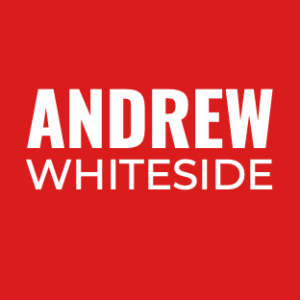As you are aware, there is a huge flap going on over the decision by Auckland Pride to ban the New Zealand Police Force from marching in uniform in the 2019 Auckland Pride Parade.
Technically police officers can march, just not in uniform and without any of the horses, vehicles or musical instruments which have made such a spectacular addition to the parade in previous years.
The decision has caused a huge negative reaction in the Rainbow Communities of New Zealand and while there are those who support it, publicly it appears that most don’t.
So why has Pride done this?
Their stated justification is:
“Although there is goodwill towards the force, as an institution they do not currently meet the degree of safety and awareness of intersectionality required by our rainbow communities”.
That statement doesn’t provide much clarity, but I suspect it means that the current Pride Board believes the New Zealand Police treat queer people and transgender people in particular, very badly.
Historically that is true, but there have been huge changes in Police attitudes and indeed societal attitudes towards non-straight people over the past thirty years and their policy and practices mean they are bound by the Human Rights Act to be non-discriminative in their actions.
Of course, in reality, no amount of policy or training can change the attitudes of a police officer if they are determined to cling to discriminatory views of other human beings.
Pride has been conducting various types of consultation with our communities about the future of the organisation and its events. In doing so they have held some hui and (it is my understanding) that some members of the community have expressed concern about Police participation in the Parade.
The question that inevitably comes from this process is: did the discussions raised in these hui lead to the Board’s decision to ban the Police?
I’ve approached the Pride Board about this issue but hit a brick wall. Board Chair Cissy Rock sent me the following text:
“All I can say at the moment is that we are talking to the Police to find a way forward for all.”
I also contacted the Police and received this response from Inspector Tracy Phillips who is the Police Liaison with the Rainbow Communities:
“This is a work in progress and we are hoping to work with Pride to find solutions so I politely decline at this stage. I hope you can respect this as we try and find a solution.”
So currently there are behind the scenes negotiations going on, but the Pride Board and the Police are unwilling to discuss the matter publicly.
I think this is a misstep since open and frank discussions about this issue are vital. I also think there are important questions that need answering about the Board’s actions – namely:
What process did the Board use to come to this decision?
Who did you consult with? And, how wide was this consultation?
What arguments or evidence swayed the Board to vote to ban the police?
And finally – Was the Board unanimous?
I can answer that last one now – no they weren’t, and in fact, one board member has resigned because he disagrees with this decision.
Essentially I have a problem with the way this has been handled:
Banning the police from the parade is a momentous decision. The Police are a popular addition to the parade and one that is welcomed by a large section of our Rainbow Communities.
More importantly having the Police, Army, Navy, Air Force and Fire New Zealand in the Parade sends a huge message to the entire world that New Zealand is a progressive country that welcomes diversity and that openly challenges discrimination. Those essential institutions of power in our country march in solidarity with the queer community and they do it with PRIDE!
What an incredibly powerful statement that makes.
I am not naive enough to assume that everyone in the Police or Army or Air Force is without prejudice. But the institutions have undertaken a monumental shift in policy and practice over the years. Remember the New Zealand Navy was one of the first in the world to institute ‘Safe Ships’ as a response to bullying of homosexuals in the ranks.
And also let’s not forget that sexism, racism and transphobia can be found in our own Rainbow Communities!
But. I am also aware that as a white male I may have had a very different experience of the Police than someone who isn’t a white male. As a community, we must not ignore the complaints or stories of those who have a different and negative narrative about the Police.
Ultimately, therefore, if the Pride Board had major qualms about Police participation in the Parade based on compelling evidence from people within the community then why didn’t they share that with us and ask for further feedback before taking the vote?
Also, since taking this decision and hearing the angry response from the public, why have they once again gone behind closed doors and shut off scrutiny of the decision?
There’s a further point I’d like to make.
Recently a conference was held in Auckland where various government agencies met with organisations within the queer communities.
The whole point of this conference was to continue improving relationships between government institutions and our Rainbow Communities.
Two of those government agencies at the conference were the New Zealand Police and the Department of Corrections.
People I have spoken to who attended the conference said it was constructive and healing.
And yet, it is my understanding from attendees that no one from Pride attended the conference, even though they were invited.
Why not?
Remember this conference took place the day before the Pride Board voted to exclude the police from the parade.
Why did they not attend a conference that was dealing with exactly the issue the Pride Board claim they are concerned about.
In reporting on this story I want to be able to give a fair and balanced view of it. There may well be some very compelling answers to the questions I have put forward and interviewing the Chair of Auckland Pride would have been a good first step to clarifying this situation.
Unfortunately, Pride has chosen to avoid public scrutiny of their decision making and in the process may have alienated the very communities they represent.




